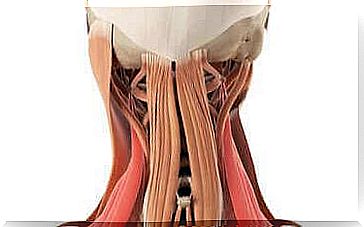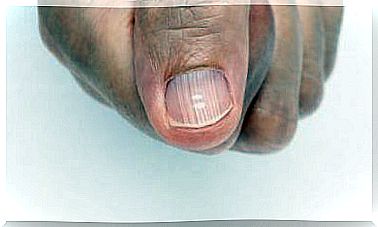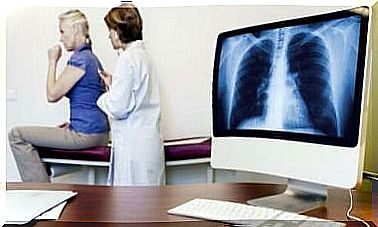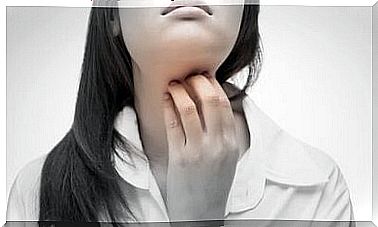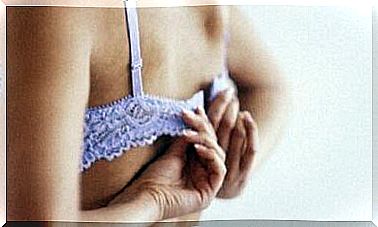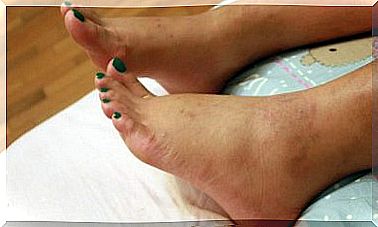Effective Tools For Depression
While some think that psychotherapy is less effective than drugs, treating depression often requires multidisciplinary approaches.
Self-control is essential to face difficult situations. Effective tools for depression are also very important tools to cope with psychological problems and adversities in life.
What is Depression?
We are talking about a mental illness that can manifest itself through sadness, a persistent low mood, feelings of guilt, loss of interest and also various physical symptoms. This has a very negative impact on everyday life.
Depression often begins in adolescence or between the ages of 20 and 30. Children can also suffer from it. It is by no means a weakness of character. A lack of affect, childhood trauma or personality disorders do not necessarily lead to depression.
The causes of depression can be varied: the loss of a loved one, the end of a relationship, difficult professional situations, an illness or even hormone fluctuations can all lead to it.
Statistically, 30% of primary care patients have depressive symptoms, and 10% of them have severe depression. One in six people has a depressive disorder.
Symptoms of depression

Tiredness, exhaustion, sadness, irritability, or anxiety can all indicate depression. Affected people lose the ability to experience certain feelings such as joy or pleasure.
They suffer from feelings of guilt, hopelessness, helplessness, loneliness and often also feel useless.
Affected people have difficulty making decisions, usually sleep little and in extreme cases can also have suicidal thoughts. In addition, they often neglect their own hygiene or no longer take care of children, family or pets.
Physical disorders and depression
Physical disorders can be directly or indirectly related to depression:
- A thyroid disorder, for example, affects the hormonal balance, which can trigger depressive symptoms.
- A brain tumor, multiple sclerosis, Parkinson’s disease, dementia, or sleep apnea can also cause depression.
- Tuberculosis, pneumonia and hepatitis are also possible triggers.
- Anxiety, alcoholism, or schizophrenia can all increase your risk of depression.
More than depression

The depression can become more severe and develop from a mildly depressed state to severe depression. At first, the person concerned is sad and depressed, and tears are constantly in their eyes. She avoids eye contact and is listless and uninterested.
- A severe depression can last for two years or longer. You lose your sense of humor and are unable to have fun. Those affected are silent, pessimistic and skeptical.
- In premenstrual dysphoric disorder, the depressed state occurs only in the days before menstruation. This disorder can appear at a young age, but disappears with menopause.
Treatment options

Psychotherapy, drugs, and other therapies are the tools for depression available to a doctor. Usually no hospitalization is necessary as long as there are no thoughts of suicide, severe weight loss or heart problems.
- If the depression is mild, visits to the doctor can be supplemented with psychotherapy. This can take place individually or in a group, which makes it possible to gradually adapt to the pressures and demands of life.
- For moderate or severe depression, psychotherapy is used in combination with drugs. Modern psychotropic drugs, heterocyclic antidepressants, selective serotonin reuptake inhibitors (SSRIs) or monoamine oxidase inhibitors (MAOIs) are usually used.
- In severe cases, there are other tools against depression: For example, electroconvulsive therapy can be used. Electrodes are attached to the head in order to trigger short-term neuronal overexcitation in the brain with electrical impulses. General anesthesia is necessary for this.
- Depression that occurs at certain times of the year is treated with light therapy. Affected persons are treated with light for at least 30 minutes, but without looking directly at the light source.
Tools for Depression
Various mental tools for dealing with depression can also be very helpful:
- It is very important to do activities that were of interest or fun prior to the depression. In this way, the physical and mental energy can be improved, while negative thoughts can be driven away.
- Sufferers have to try to convert negative thoughts into positive ones. It is also important to promote self-esteem in order to accept and use one’s own defects and to learn from them.
- Self-assertion must also be learned. Depressed people need to learn to defend their own rights.
- Acceptance of emotional states, even if they are negative, shows emotional intelligence. You have to be able to control fear, anger, sadness or nervousness.
- Goals motivate us and move us forward in life. This is why incentives are important in overcoming depression. Pursuing a goal is an important tool for combating depression.
- Relaxation to calm the body and mind is also of paramount importance.
- Meditation can also be very helpful as a tool against depression.
The treating physician must decide which treatments and tools for depression are best in each individual case.
